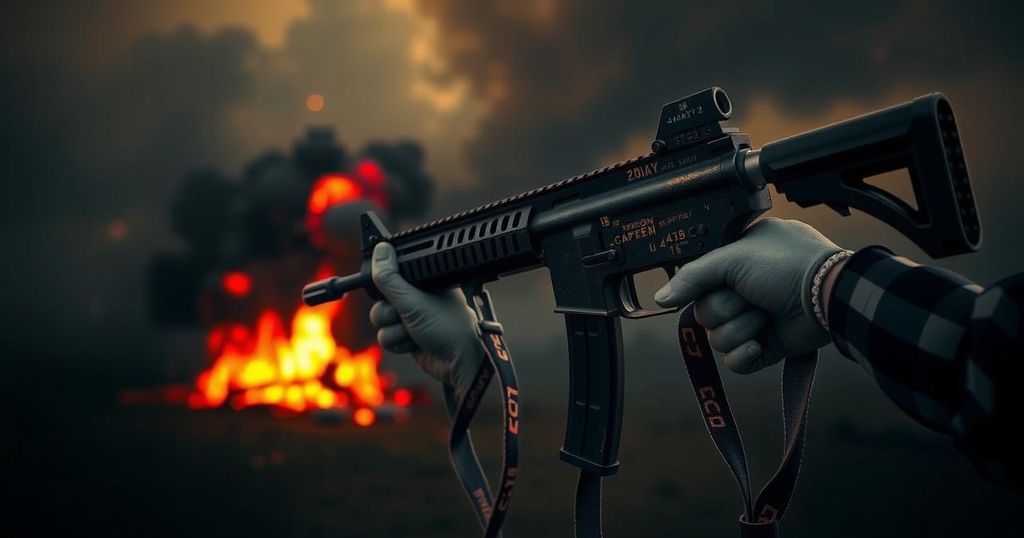Amnesty International alleges that French military technology is being used by the RSF militia in Sudan’s civil war in violation of a UN arms embargo. The reports indicate the utilization of the Galix defense system, pointing to serious concerns about potential human rights violations. Despite appeals for accountability, both French authorities and the UAE have remained silent on the issue, while fighting between the RSF and the Sudanese army continues.
Amnesty International has reported that French military equipment is being actively utilized in the ongoing civil conflict in Sudan, in breach of a United Nations arms embargo. Specifically, the rights organization claims that the Rapid Support Forces (RSF) militia is employing vehicles provided by the United Arab Emirates that are equipped with the French-manufactured Galix defense system in combat against the Sudanese army in Darfur. Amnesty’s Secretary General, Agnès Callamard, stated, “Our research shows that weaponry designed and manufactured in France is in active use on the battlefield in Sudan.” While French authorities have not yet addressed these allegations, the UAE has denied its involvement in supplying the RSF.
The Galix system, produced by French firms KNDS and Lacroix, is intended to enhance ground troops’ defenses against close-range attacks. Amnesty International warned that these weapons might facilitate severe human rights violations and urged the French government to halt their supply to the UAE. The organization has provided verified photographs of destroyed vehicles in Sudan bearing the Galix system. Amnesty asserted, “If France cannot guarantee through export controls, including end user certification, that arms will not be re-exported to Sudan, it should not authorise those transfers.”
The United Nations first instituted an arms embargo on the Darfur region in 2004 due to allegations of ethnic cleansing against non-Arab populations. Amnesty International has called for an extension of this embargo to encompass all of Sudan and for enhanced monitoring of its implementation after the resurgence of civil conflict in 2022. The ongoing war has pitted the RSF, under General Mohamed Hamdan Daglo, against Sudan’s regular army led by Abdel Fattah al-Burhan since April 2023, following a breakdown of their prior alliance. Both factions have faced allegations of committing war crimes, resulting in thousands of fatalities and millions of individuals displaced across the region.
The conflict in Sudan’s Darfur region has been ongoing since 2004, stemming from deep-seated ethnic tensions and power struggles. The United Nations has previously intervened by implementing arms embargoes to curtail violence and protect civilians. However, ongoing battles between the RSF and the regular army have escalated into widespread atrocities, drawing attention from humanitarian organizations like Amnesty International. The emergence of modern military technology, particularly from foreign suppliers, has intensified concerns regarding compliance with existing arms embargoes and the implications for human rights in conflict zones. The RSF, formerly aligned with the Sudanese army, has been accused of systematic violence, including ethnic cleansing, which has provoked international outcry and demands for stricter controls on arms exports to ensure they do not exacerbate the humanitarian crisis in Sudan.
In conclusion, the reports by Amnesty International regarding the use of French weaponry in Sudan’s civil conflict highlight significant violations of international arms regulations. The allegations against the use of the Galix defense system raise urgent ethical questions about arms transfers and their consequences for human rights. As both the RSF and the Sudanese army continue to carry out violent confrontations, the role of foreign military support must be scrutinized to prevent further escalation of atrocities and to protect vulnerable populations in Sudan.
Original Source: www.bbc.com






